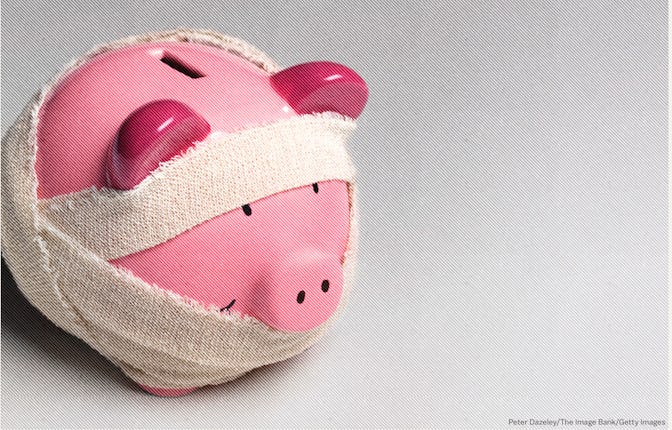Medical debt could soon be erased from your credit report — but there's a catch
Isn't there always?

Much like literally half of Americans, I have medical debt. I have tons to say about how this is symptomatic of the cultural disease we call capitalism, but let’s put a pin in that for now. Last week, the three major credit reporting agencies — Experian, TransUnion, and Equifax — announced major changes in the way they plan to report medical debt in the future. The changes these credit reporting firms are making will effectively erase most medical debt from our credit reports. It sounds promising but what does that actually mean and is there a catch?
The three agencies announced in a joint press release on Friday that as of July 1, 2022, paid medical collection debt will no longer be reported and the grace period between when a medical debt enters collection and when it appears on a person’s credit report will be extended from six months to a year. In addition, medical collection debt under $500 will not be recorded on credit reports, according to the press release.
In practical terms, what this means is that if you have accrued medical debt that has gone into collections but paid it off, that debt will not figure into your credit score for the usual seven years. It will just go away. And you basically have up to a year from the time a medical debt goes into collections before it impacts your credit. If you owe less than $500, it just won’t impact your credit at all. Sounds great, right?
Oh sure, it’s great if you have, or will soon acquire, the ability to pay off your looming medical debt soon, but it won’t make a difference for people who are unable to pay at all. And if you owe more than $500, you will need to be able to make payments within a year before your credit score goes down.
The problem is that more than half of the people who owe medical debt owe more than a thousand dollars, so this won’t help them. And in case no one’s noticed, we are in kind of an inflation-unemployment-financial-oil war clusterfuck that is only expected to get worse, so it does seem possible that we won’t be out of it quick enough for people who owe to get out of collections.
Still, this is something. Credit agencies say this will take 70% of medical debt off credit records, according to the announcement. The announcement followed the release of a report by the Consumer Financial Protection Bureau that showed that Americans had $88 million of paid medical collection debt on their records.
“As an industry we remain committed to helping drive fair and affordable access to credit for all consumers,” the companies announced in their statement. Yeah, okay. I find any statement that tries to combine the concept of fairness with debt oxymoronic, but I guess it’s better than nothing.